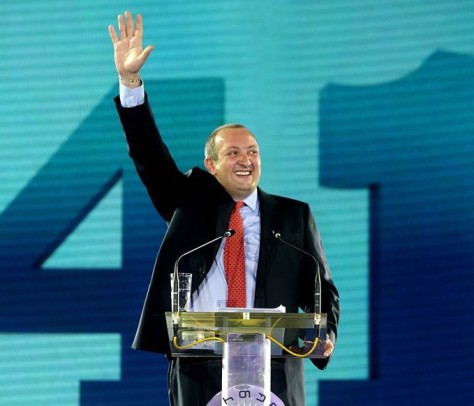The 27 October presidential election should bring political closure to twenty-five years of political upheaval, and can give Georgia what it aspires for. But there are some final tests yet.
Compared to previous elections in Georgia, the process of selecting a new president for the country on 27 October has proceeded without major problems. One week before the polls the main threat to the free expression of the will of the Georgian people seems to be apathy, rather than election fraud or manipulation.
Georgia’s political journey over the last twenty-five years has been tumultuous. The events on 9 April 1989, when Soviet OMON forces killed peaceful civilians on Rustaveli Avenue broke the unwritten accord between the Georgians and the Soviet leadership which had seen Georgia getting the best possible deal out of the Soviet system in return for political acquiescence. Ever since, Georgian politics has been a roller coaster of upheavals. Euphoria and disappointment alternated in regular short cycles, with wars, rebellion, revolution and repression added in for good measure. Yet this era of Georgian politics seems now to be coming to a close.
Georgia has had three presidents since it eventually regained its independence in December 1991 when the Soviet Union unceremoniously disintegrated. Most Georgians these days find it difficult to talk highly of any of them. More…


 Giorgi Margvelashvili, the Candidate of the Georgian Dream Party has launched his political programme ahead of Presidential elections in Georgia on October 27. Speaking at a grandiose event which was also attended by Georgian Dream leader, Prime Minister Bidhzina Ivanishvili, Margvelashvili outlined his vision of the Georgian Presidency in the future, saying that the president will be a guarantor of political freedom and a democratic system.
Giorgi Margvelashvili, the Candidate of the Georgian Dream Party has launched his political programme ahead of Presidential elections in Georgia on October 27. Speaking at a grandiose event which was also attended by Georgian Dream leader, Prime Minister Bidhzina Ivanishvili, Margvelashvili outlined his vision of the Georgian Presidency in the future, saying that the president will be a guarantor of political freedom and a democratic system. 
